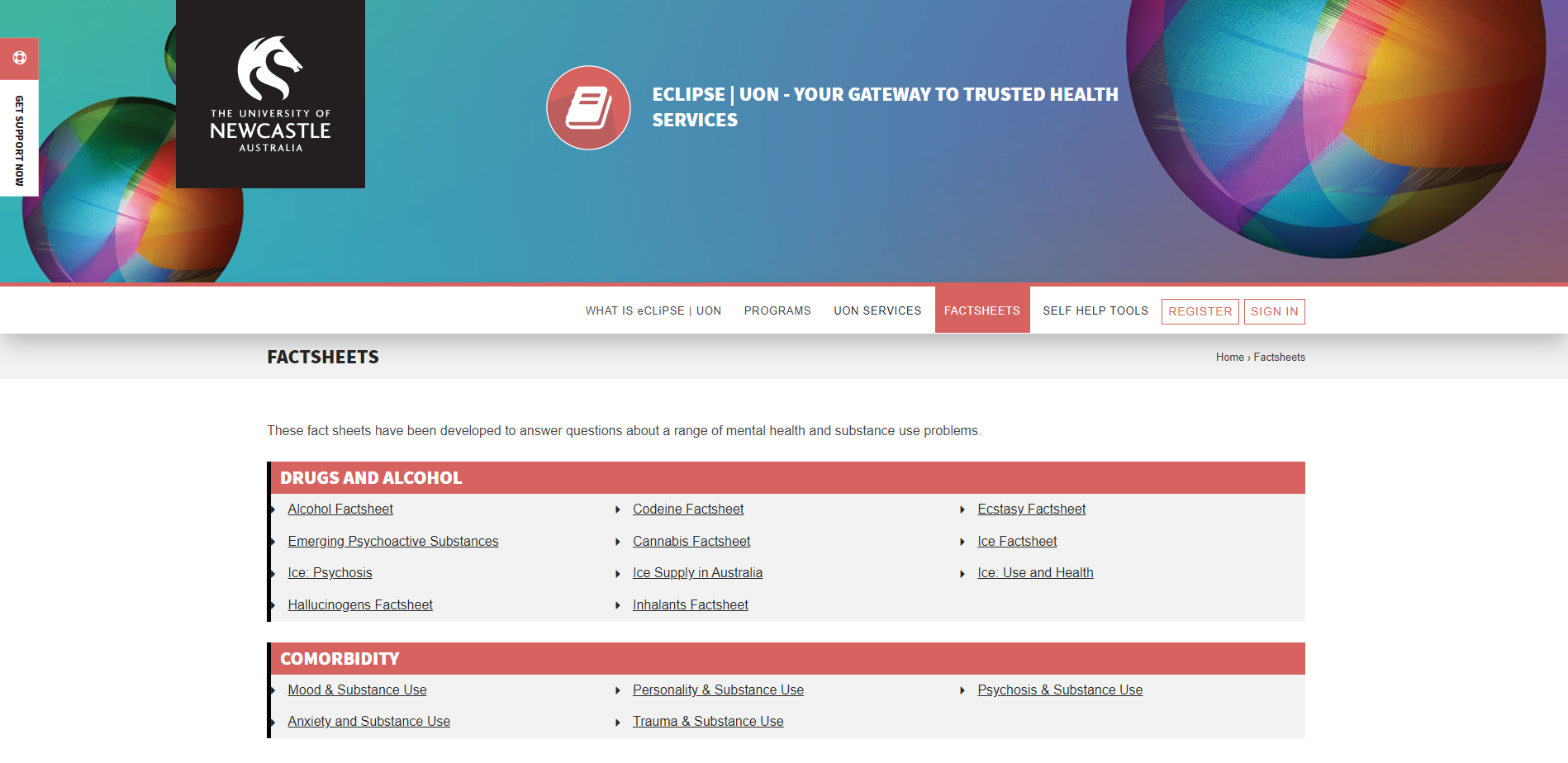eCliPSE UON is a set of free online treatment programs for students of the University of Newcastle who are wanting to improve with mental health or reduce alcohol or other drug use. eCliPSE allows students to complete some initial questionnaires to receive feedback about their mood and substance use and a recommendation on the most appropriate program.
There are currently four treatment programs available:
- 1. “Healthy Lifestyles” – designed to help people to reduce or quit smoking and improve heart health through healthy diet and exercise
- 2. “Breaking the ICE” – a brief program to help people who use stimulants reflect on their use and make changes in their life
- 3. “SHADE” – a 10 week program designed to help people experiencing symptoms of depression who are drinking alcohol or using other drugs
- 4. “The DEAL project” – a 4 week program designed for young people with concerns about depression and alcohol use
eCliPSE has been developed in conjunction with NSW Health and the University of New South Wales initially and modified here with assistance from staff at Student Care and Equity at the University of Newcastle to suit the needs of the University of Newcastle student community. The eCliPSE resources have all been developed, tested and found to be effective in Australia.





